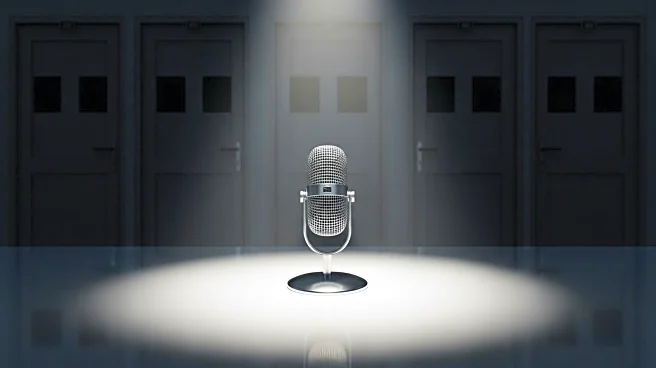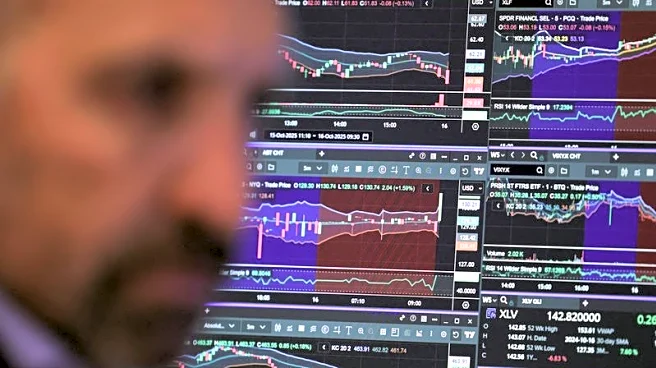What is the story about?
What's Happening?
The Pentagon has introduced new restrictions for journalists covering the Department of Defense, requiring them to sign a pledge not to gather or report on unauthorized information, even if unclassified. Journalists who do not comply risk losing their press credentials. Defense Secretary Pete Hegseth emphasized that the press does not run the Pentagon and must adhere to the new rules. The restrictions also limit journalists' access to certain areas of the Pentagon unless accompanied by a government escort, a significant change from previous practices. These measures have been criticized by press freedom groups and longtime Pentagon reporters, who view them as an intimidation tactic and a threat to transparency.
Why It's Important?
The new restrictions imposed by the Pentagon represent a significant shift in the relationship between the U.S. military and the press, potentially impacting the transparency and independence of journalism. Critics argue that these measures could undermine the constitutional principles of free speech and press freedom, as they restrict journalists' ability to report on government activities. The move has raised concerns about the government's control over public information and the potential for propaganda. This development is part of a broader trend of increased scrutiny and limitations on media coverage by the U.S. government, which could have long-term implications for public access to information and democratic accountability.
What's Next?
The implementation of these restrictions may lead to legal challenges from press freedom advocates and journalists who view the measures as unconstitutional. Organizations like the National Press Club and the Free Press Foundation are likely to continue voicing opposition and may seek legal recourse to protect journalistic rights. The situation could also prompt further debate and scrutiny regarding the balance between national security and press freedom. As the Pentagon and the Trump Administration continue to face criticism over their treatment of the media, the issue may become a focal point in discussions about government transparency and accountability.
Beyond the Headlines
The Pentagon's new restrictions on journalists highlight broader ethical and legal concerns about government control over information. The policy raises questions about the role of journalism in a democratic society and the potential consequences of limiting press access to government operations. The move could set a precedent for other government agencies to impose similar restrictions, further challenging the principles of free speech and independent reporting. Additionally, the situation underscores the ongoing tension between national security interests and the public's right to know, a debate that is likely to continue as technology and media evolve.
















